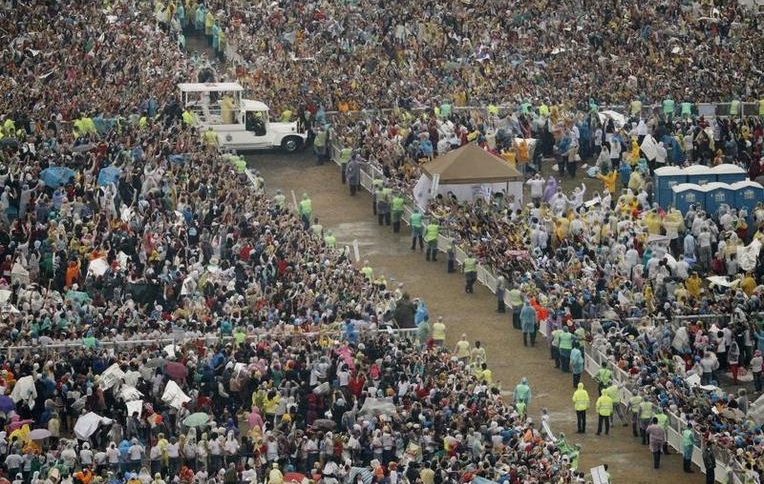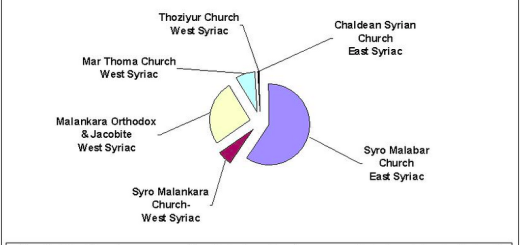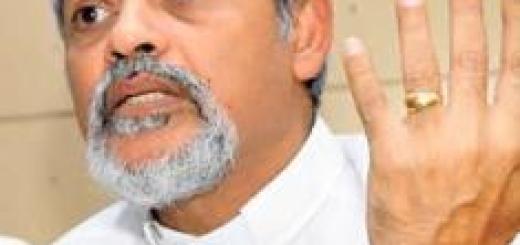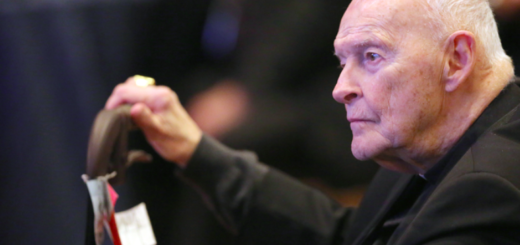Papal Dynamics – Swami (Dr) Snehanand Jyoti

 Swami (Dr) Snehananda Jyothi spent most of his life in USA. Quite attracted in distinct philosophies, he founded the 'East-West Awakening Ministries', which means an effective sharing of the philosophies of East and West. He also established four EWA Centers in USA and India. This is a profound article on the practical remedies to reestablish the kingdom of God as envisioned by Jesus the Christ. The article was originally published by Indian Thoughts, Share and Learn. Many of his works are open for reading in Indian Thoughts, Blooming Stars. This article was wriiten immediately after the election of Pope Francis – asso. editor CCV
Swami (Dr) Snehananda Jyothi spent most of his life in USA. Quite attracted in distinct philosophies, he founded the 'East-West Awakening Ministries', which means an effective sharing of the philosophies of East and West. He also established four EWA Centers in USA and India. This is a profound article on the practical remedies to reestablish the kingdom of God as envisioned by Jesus the Christ. The article was originally published by Indian Thoughts, Share and Learn. Many of his works are open for reading in Indian Thoughts, Blooming Stars. This article was wriiten immediately after the election of Pope Francis – asso. editor CCV
When I wrote in early January 2013 that it is time for Pope Benedict XVI to consider resigning if he is physically and mentally feeble so that his cronies would not govern the Catholic Church in his name, I did not in my wildest imagination think that the Pope would take the very bold step of resignation so soon on February 11, 2013. His decision to resign in my mind is the best decision he made in his life. In this article I want to briefly high-light some important factors of interest in the papacy of Pope Benedict XVI and mention some salient factors in the election of a new pope. As a Jesuit professor in a leading institution (Jnana Deep Vidyapeeth (JDV) – Institute of Philosophy and Religion – Pune, India) in the world that trained selected candidates for Catholic priesthood I had a deep interest in the doings of popes. Besides as a solemnly professed Jesuit I had taken a special vow of obedience to the pope. Progressive Jesuits did not view Pope John Paul II favorably as he was very conservative. His take- over of the Jesuits after a bad stroke Pedro Arrupe, the superior general of the Jesuits, suffered by appointing his own men in a stubborn autocratic authoritarian style was unprecedented. The Jesuit professors at Pune including me expressed our displeasure in a letter addressed to the Pope. It was very obvious that Pope John Paul II was not very fond of the Jesuits especially in the way faith was more and more looked at by Jesuits in the context of social justice in the world. Pope John XXIII and Fr. Pedro Arrupe (the Superior General of the Jesuits is also known as the Black Pope, because of his importance as the head of a powerful world-wide religious order in the Catholic Church, and because he wore a black cassock) were two holy and visionary men of the last century who strived to bring the Catholic Church into the modern world. And the two men who stalled progress in the Church after the Vatican Council II were Pope John Paul II and Cardinal Ratzinger, the right hand man of Pope John Paul II. I think the way John Paul II treated Arrupe also contributed to his stroke. By the way the job of the Jesuit General was also life-long until Arrupe. I might also add that Pope John Paul’s action in taking over the Society of Jesus also contributed to my leaving the Jesuits. Besides I would not be able to criticize the pope and write what I am writing now if I were a Jesuit.
It must be said that Pope John Paul II did well in loosening the strangle-hold of communism in his native Poland. But he did not do anything to ameliorate the situation in Latin America by supporting liberation theology that had a bearing on the plight of the poor Catholic peasants and the natives crushed by rich callous Catholic land-owners and evil right-wing dictators. So much so Fr. Leonardo Boff, a Franciscan liberation theologian in Brazil called Pope Benedict XVI a religious terrorist. Pope John Paul II created a fortress of conservatives and ultra-conservatives such as Opus Dei men and Cardinals such as Ratzinger around himself. He even canonized the founder of the Opus Dei. He did not undertake any substasntive and meaningful reform in the face of enormous changes and challenges facing the Catholic Church. Of the 115 Cardinals who came to the conclave to elect a new pope all, except two cardinals, of whom one was Cardinal Ratzinger, were appointed by Pope John Paul II. When Joseph Ratzinger was elected pope in 2005, the Time magazine quipped that the new Pope, Cardinal Ratzinger, was as close to cloning John Paul II as the Catholic Church could get. At that time I wrote that I did not expect Pope Benedict to do anything remarkable in his pontificate. Apapabilis ( a word in Latin meaning a person who is capable of being elected as a pope; a person who is talked of as a future of pope), Jesuit Cardinal, Archbishop of Milan, Carlos Martini, much popular than Ratzinger in the very same conclave Ratzinger was elected to be Pope, said in an interview two weeks before his death at the end of August 2012 that the Catholic Church was two hundred years behind times. Cardinal Martini’s scathing criticism of the way the Church is run is very poignant.
In his early priestly years Fr. Joseph Ratzinger started as a liberal. Cardinal Ratzinger functioned as an arch conservative all the important years of his active life. He was the chief spokesman for conservatism, traditionalism, and fight against liberalism, relativism, and modernism. His papacy was still born. He did not have any bold initiative to solve the problems facing the Catholic Church. He re-cycled the same issues that confronted Pope John Paul II and himself as the Pope’s right hand man. Pope Benedict was a spent man as a Cardinal in the papacy of John Paul II. He spent his energy spinning his wheels going nowhere around the same issues. He was not able to lay to rest the clergy child sexual abuse. Of course the news-starved media and the anti-Catholic elements tried to keep it alive and get the most mileage out of it. But Benedict’s lack of decisive action together with the controversy surrounding dealing effectively with it as a cardinal did not help. In the initial unearthing of the abuse, he was, perhaps, unaware of the enormity and extent of the abuse that damaged the Church’s very credibility as a safe, secure, and spiritual haven for children. But the inner workings of the unaccountable authoritarian Church governance shrouded in secrecy was also responsible for the mess. They thought they were divinely appointed, and hence above any civil laws. They did not take into confidence civil authorities at critical junctures. A very important principle that some Church officials in high position forget is that the Church the bride of Christ needs to be as self-transparent as Christ himself.
The Society of St. Pius X was founded by the rebel French Archbishop Marcel Lefebvre to fight the reforms of the Second Vatican Council. He was a strong defender of Tridentine Mass, certain beliefs and pious practices, and religious discipline before the Second Vatican Council. He was explicitly reprimanded by Pope Paul VI for his obstinate disobedience and on-going persistent defiance. This reprimand was an unusual act for a pope. Lefebvre was forbidden to ordain priests and bishops. Against the explicit orders of Pope John Paul II, Archbishop Lefebvre ordained four bishops who incurred automatic excommunication together with Lefebvre on account of the defiant act. The archbishop’s schismatic act was condemned by Pope John Paul II. Pope Benedict XVI remitted the excommunication of the four bishops. One of the bishops even denied the holocaust. The Pope also resurrected the Tridentine Mass, a symbol of the rejection of the Second Vatican Council according to Pope Paul VI (Refer National Catholic Reporter, December 8, 2012). Pope Benedict XVI bent backward so far to accommodate the schismatic prelate and his bishops that, I must say, he fell down. These acts of his needs to be viewed in the light of several progressive theologians who were silenced or forced to leave their prestigious positions or ministries in the Catholic Church on account of his intolerance. During his and Pope John Paul II’s regime progressive theologians were oppressed and emasculated as he was supposed to be the guardian of the Catholic doctrine and as he had the power and resources to reward those who toed his lines. The Church as a community in a representative council needs to come to the decision as to what is orthodoxy and what is a vital doctrine. It is not the prerogative of a pope or his appointee to decide that. It is high time that the notion embedded in the minds of most Catholics that the Pope and his Curia (equivalent to a cabinet) are the Church and their decisions with regard to the universal Church are undisputable needs to be rooted out. The Pope and all his officials are subject to the same admonition of St. Paul of working out their salvation, as any other Catholic, with fear and trembling.
Besides the sexual abuse scandal, there are other problems such as the contentious birth control debate, gay and lesbian issues, homosexual unions, women’s issues including their ordination to the priesthood, married priesthood, stem-cell research and the whole field of medical ethics, divorce and re-marriage, vocations to priesthood and religious life, and the exodus of Catholics to other less enlightened religious denominations, and above all listening to the serious concerns of ordinary Catholics that Pope Benedict failed to address. With an a-priori academic, rigid mind-set, and an authoritarian, autocratic approach, Pope Benedict XVI did not have the openness or the psychological mindedness to deal with real problems in the real world. Even theologically and spiritually he needs to have known that we need to let go all pre-conceived ideas about faith and even God so God, the Pure Energy, can come into us and become the In-dweller (Vasudev). This indwelling is nothing but the Pure Gift of Grace. This is what all the dignitaries in the Catholic Church ought to know. Of course from this Pure Gift of Grace proceeds good works for others because we are all one humanity in the One God.
Pope Benedict’s final significant decision of resignation is progressive, and appears to come, I would like to think, from his long dormant liberalism. It is all the more important since he, a conservative, made it. It certainly gives fresh life and new hope to the immediate Church. It will help in ushering the Catholic Church into the modern era. Many more things like democracy, equality, and freedom are needed to launch the Church into the modern era and the Kingdom of God. They will come down like an inevitable avalanche crushing the ramparts of the official authoritarian autocratic Catholic Church that has nothing to do with the Universal Catholic Church of all the members and the spirit of Christ. But the resignation of papacy, the bastion of autocratic authoritarianism is a start. It certainly takes into account the ground realities of a Church that needs to live in the modern world. This one decision of Pope Benedict is certainly a redeeming act in that it begins to demystify the papacy. This may be considered to be the greatest contribution to a lackluster and almost disastrous papacy that went nowhere. I am sure this one decision took the conservatives by surprise. He gave credibility to the idea of a pope’s resignation. No serious reform of the church took place under his watch. He also turned the clock back on the second Vatican Council that ended in 1965. In the minds of many progressive theologians, the second Vatican Council was only a beginning of reforming a Church lost in the dark, cruel, and barren desert of the Middle Ages. Pope John Paul II in his long papacy wasted his moral capital and kept the Church limping with his so-called charism. Pope Benedict XVI did not have that charism and not much of moral capital. His energy was already spent under John Paul II in blocking progressive theologians and upholding conservative and absolute traditional values in a relative world. An apt metaphor might be that Pope John Paul II and Pope Benedict XVI spent all the ammunition trying to shoot a flying bird with a static gun. They could not accommodate fast and vast changes in the modern world. The teachings of Christ are valid for all times. But the application of these perennial values changes according to changing conditions and times. They were not visionaries. They were not able to see the signs of the times. They were not able to adapt according to the changing times. That is where they went wrong. Any good driver knows that any driving has to be adjusted to the road conditions: heavy rains, cloud bursts, avalanches, snow, sleet, pot-holes, sudden flooding. They were not able to do that.
Intelligent as they were, they surrounded themselves with conservative and ultra-conservative clergy and made the mistake of thinking that they had absolute, unchallenged authority from Christ, and that they had answers to all the problems facing the Church. Relying on their out-dated concepts of supremacy and infallibility, they used the official machinery to appoint persons who toed their line of thinking as bishops and cardinals to important positions in the Church. Supremacy and infallibility were ill-suited to a servant-Church missioned to serve and not to be served. They only denoted pomposity and separateness that kept disagreements and spawned fruitless debates. Instead of bringing persons together they drove wedges among them and separated them. They demanded absolute obedience and submission from the vast majority of Catholics who are mostly naïve and unthinking, and accepted their pronouncements uncritically as part of their faith and routine trust in Church authority.
The last blow to the papacy came from the butler of Pope Benedict who leaked secrets related to the very inner workings of running the Catholic Church. The problems facing the Catholic Church are enormous and currently, beyond the critical stage, and require very urgent and effective solutions. These solutions have to come from the teachings of Christ as revealed in the Gospels. Many anti-Catholic speculations and gossips related to the resignation of the pope, unfortunately, are floating. I trust in the reasons that the Pope who will be 86 in April 2013 gave: “…My strengths, due to an advanced age, are no longer suited to an adequate exercise of the Petrine ministry.” Reports insinuate that by his resignation he might be also intending the eventual removal of some of the papal Curia who were out of control. The unkindest cut of all after his resignation was the resignation of Cardinal Keith O’Brien amid claims of sexually inappropriate behavior with a seminarian and three priests. O’Brien who publicly acknowledged his sexual misconduct and apologized for the same was scheduled to attend and vote for the new pope as the only representative of the United Kingdom in the papal conclave due to meet in Rome in March 2013. As one of the 115 or 116 cardinals voting and being voted for, he himself could have been electable as a pope. Ironically, O’Brien has been an outspoken critic of gay and lesbian rights, denouncing plans for the legalization of same-sex union/marriage as “harmful to the physical, mental and spiritual wellbeing of those involved”. O’Brien’s resignation is all the more poignant in a Church rocked recently by sexual abuse scandal.
There is not a single cardinal who has not been appointed by the conservative popes, John Paul II and Benedict XVI. This is not the way to run a 1.2 billion strong Church that needs to be represented by a cross-section of people. The Church in its governance needs representation from traditional, conservative, progressive, and liberal quarters. No pope is entitled to pontificate God’s will. The election of a pope is done in a conclave. A conservative conclave is likely to produce another conservative pope. A notable exception in recent history was Pope John XXIII who did not think of being elected as he had a return ticket to Milan. The conclave, a locked in setting coming from the phrase cum clave (with a key) in Latin where the electors, cardinals below the age of 80, are secluded in the Sistine chapel of the Apostolic Palace, and are not permitted to leave the place before the pope was elected. In the last conclave they were able to leave the Sistine chapel for their living quarters nearby. They are forbidden to have any contact with the outside media. They are able to interact among themselves. Since 1970 only cardinals under the age of 80 could elect the Pope. Currently there are 115 such cardinals. A two-third majority of cardinals present is required for the election. Pope John Paul II changed the procedure, and required only a simple majority after the fourth ballot. Pope Benedict reverted to the previous procedure of two-third majority. No cardinal is allowed to canvas for himself or any other cardinal. The conclave begins in the Sistine Chapel. The cardinals celebrate a Mass for electing the pope in the morning. That afternoon, they begin the election process. They draw lots to select three members to collect ballots from the infirm, three to count the votes, and three others to review the results. After the ballots are duly marked they walk to the altar in order of seniority and make pledges to perform their duty with integrity, and drop the ballots into a chalice. The ballots are tallied, and the result is read to the cardinals. If a cardinal receives two-thirds plus one of the votes, he is the new pope. If there is no winner, a maximum of three more votes may be scheduled for that afternoon. Pope John Paul II was elected at the eighth ballot. Pope Benedict XVI was elected after the fourth. When a pope has not been elected, the ballots are burned with a chemical to produce a black smoke. When a pope has been elected the ballots are burned alone to produce a white smoke. The white smoke emerging from the chimney of the Vatican Palace will announce the election of the pope for those assembled in St. Peter’s Square.tried to love Christ and his Church with deep and total love. I also want to say that those of us who disagreed with him also love Christ and the Church with deep and total love. In fact without that love I cannot write what I am writing. A pope’s obedience needs to be to the discerned decisions of the Universal Church in a Council. He needs to be accountable to the will of Christ manifested in the Church through a Council. We need a balanced approach that is neither conservative nor liberal but progressive. The Church cannot be held hostage by any particular group or view point or the bureaucratic curia. It needs to interpret the signs of the times. I am not enthusiastic about this conclave in Rome to elect the new pipe as all the 115 cardinals, appointed by Popes John Paul II and Benedict XVI, are from a conservative mold. We need a pragmatic pope who listens to all, who discerns God’s will with all in a representative council, and who, above all, is a holy visionary, and inspires to live Christ’s teachings and not a particular ideology. We also need to demystify the conclave and the election of the pope in a process dating to medieval times. All the current procedures came in place due to particular exigencies of the times. The past procedures, if not useful, need to go.
A Hindu sanyasi (ascetic) friend, who follows the teachings of Christ, asked me if the conclave is marked by inspiration or perspiration. He wanted to know if the conclave is guided by politics and human factors or by spiritual concerns directed by the Holy Spirit. I told him it is both. We are humans; God works through us; God knows the possible shortcomings inherent in human nature. The whole system whereby a pope is elected needs to be totally overhauled. Before 1059 in the Christian Era, the Bishop of Rome also known as the pope was chosen by the consensus of the clergy and laity of the diocese of Rome. There were popes who were also selected by powerful families or kings in Europe. Most popes were Italians. Before Pope John Paul II, Italians were popes continuously for 455 years. Out of the current 115 electors, 28 are Italians. Europe that has only 24% of the Catholic population has 60 cardinals, that is, 69% of electors. Since 1059 the sole body of electors of the pope became the College of Cardinals. Theoretically any believing male Catholic can become a pope. And there were laymen who became popes. Pope John XIX, for instance, was the first and only pope to succeed his older brother, and that too through bribery. He actually bought the election, and “his canonically illicit passage from lay status to papacy in a single day shocked and infuriated many of the Romans”. Since 1970 only cardinals under the age of 80 could elect the Pope. Pope Celestine III was eighty-five years of age when elected, and managed to serve almost seven years. A two-third majority of cardinals present is required for the election. Pope John Paul II changed the procedure, and required only a simple majority after the fourth ballot. Pope Benedict reverted to the previous procedure of two-third majority. This is a human-made system. Currently a pope appoints cardinals who in turn elect his successor at his death or resignation. This autocratic dictatorial system perpetuates itself. It cannot be justified by invoking divine approval. This system cannot be considered to be God’s will. God permits this system as God permits evil. This system as it is needs to go. A divinized system that truly represents 1.2 billion Catholics need to replace the outdated monarchical, autocratic system.
As I was going to write that an autocratic, authoritarian papal electoral system can beget only its kind as a pope, the news of the election of Cardinal Jorge Mario Bergoglio of Argentina as pope came. The report of his simplicity and humility in contrast to Vatican splendor touched me deeply even in my skepticism related to papacy. The fact that he is the first Jesuit pope also warmed my heart as I was a Jesuit for 25 years, and as I think of Jesuits as eminent men as a whole. His selection of the name, Francis, – evocative of two great saints: Francis of Assissi and Francis Xavier who surrendered themselves totally to God – as his name also bodes good. He is conservative, and is not without controversy related to murderous dictators between 1976 and 1983. We do not know his circumstances, and we want to wish him the very best to make the urgent changes he needs to make in the Catholic Church.
The history of papacy is horrible and scandal-ridden. Some of the popes such as Alexander VI and John XII have been very immoral. Pope Sixtus IV who built the world-famous Sistine chapel in Vatican named six of his nephews cardinals. Pope Innocent VI was denounced by St. Bridget of Sweden as a persecutor of Christ’s flock. Pope Urban VI was so unstable and abusive that an anti-pope was elected to replace him causing the great Western Schism with three claimants to the papacy. Boniface VI was elected after having been twice defrocked for immoral conduct. Pope John XI was the illegitimate son of Pope Sergius III and Marozia, the head of the powerful Theophylact family. The list goes on.
The distinction between religious and secular, lay and religious, profane and sacred, clergy and laity, and politics and religion is getting blurred. As humans participate in divine nature, every conscious act of human is profoundly spiritual as it is made with a view to sustain the spirit. Only the spirit/soul in human is eternal. A truly spiritual person is always guided by the Holy Spirit and purity of intention. The whole world is charged with the presence of the Spirit. Nobody has any special privilege or special access to the Spirit. It is not right that a pope selects the cardinals who elect his successor. The machinery for selecting a pope has to be set up by a truly representative Church Council. What is required is not secrecy and tactics but the Gospel (good news) of Jesus Christ. That is what brought down the mighty Roman Empire. The Gospel is plain and simple; it does not need to be wrapped in attractive worldly wrappings. It is perennial and eternal. It stands by itself. It does not need Cardinals who are known as princes of the Church in outdated red costumes and other paraphernalia. All monarchical, pompous names should be abolished outright. They do not befit men who follow the man born in a manger in utter destitution. The Church elders such as pope, cardinals and bishops should be recognized by their love, mercy, compassion, truth, transparence, holiness, and humility. The Catholic Church needs to make a fundamental option for the poor. It needs to be guided by the spirit of sharing and communitarian living (Acts 2 and 4). The Church needs to be a fortress of holiness and transparence in its spiritual and material dealings.
Pope Francis, lacks legitimacy in that he was elected by a non-representative body of the Church (115 cardinals selected by conservative Popes John Paul II and Benedict XVI). However, I want to forgive that grave error, and ask other reform-minded persons to do the same. I want to give the Pope, who began extraordinarily well compared to previous popes, 5 to 7 years to put the Church in order. He may have a maximum term of 7 years to do his job and resign. First of all he needs to call a representative General Council that includes all the segments of the Church to set up a democratic process to elect a pope (his successor) in the future who really represents the entire Church. It is not anymore going to be a pope who is interpreting God’s will, and who appoints cardinals and bishops in descending hierarchical order to govern the Church. It is going to be all the members of the Church who discern God’s will and decide the future of the Church. The electoral process can be very simple for a General Council. Each diocese in the world can elect 3-5 clergy and lay representatives to elect the pope. For the election of the pope all do not have to go to Rome either. The General Council can set the agenda for the Church that the Pope and a few representatives (a cabinet – equivalent to the Curia) chosen by the Council can put into practice. Much can be written about the shaping of a New Church administration according to the mind of Christ, that can even be a magnificent model for a new political World Government of all the nations. The New Church striving for Unity of Christianity characterized by love, compassion, truth, freedom, and tolerance, needs to be non-judgmental, and respects everyone’s conscience in a multi-cultural world. True love can work only in freedom; and only truth can set us free or help us achieve salvation. And Christ, above all, came to teach compassionate love and freeing truth. The New Church needs to set guidelines and policies according to the teachings of Christ in the Gospels. There need to be periodic General Councils every 10 or 15 years to discern and identify problems facing the Church, and formulate guidelines and policies to meet the challenges according to the signs of the times. Trained as a Jesuit, Pope Francis, I am sure, is well aware of the calling of (1) periodic General Congregations in the Society of Jesus to keep abreast with the changes in the world in order to minister to that world, and (2) discernment of spirits to make the right choices (elections) in spiritual life. Let Pope Francis use all his training and pastoral experience to reform and modernize the Catholic Church. Let him guard against all authoritarian and autocratic impulses. We are watching his every step. The world needs solid transforming deeds and not pious platitudes. Let the New Church be a fortress of spirituality, that goes beyond all religions, and that is for all God’s children paving the way for the urgently needed Unity of Humanity.
















